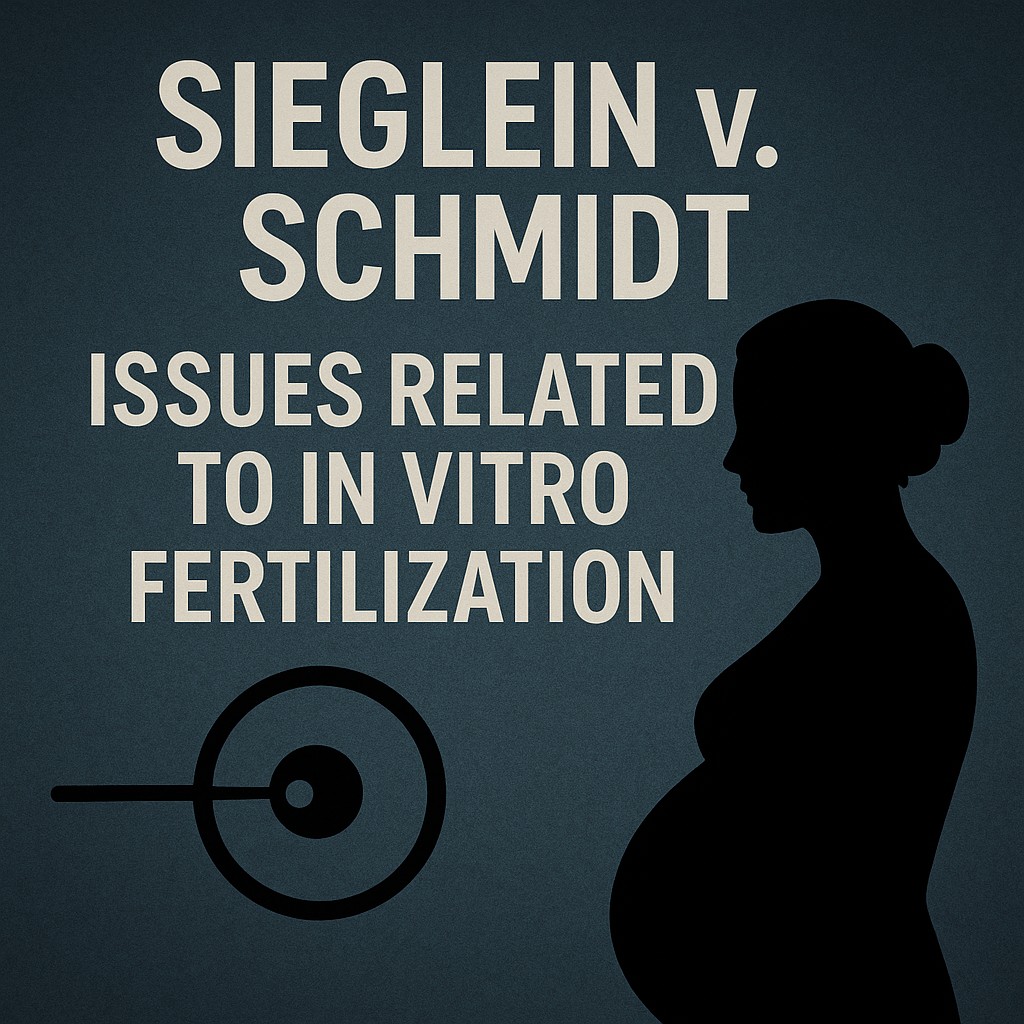Modern technology has given opportunities for parenthood which would have been unthinkable in the not too distant past. Now, with assistive services such as in vitro fertilization (IVF), people are able to conceive children well past the range in which childbearing is normally achieved. Furthermore, IVF also allows for certain innovative parenthood options, such as the conception of a child using genetic material from anonymous donors. With innovative parenthood options afford through IVF, we shouldn’t be surprised when concerns are raised regarding child support when parents separate. Maryland courts have been tasked with making determinations regarding parental responsibilities for new parenthood scenarios, such as those involving anonymous donors through IVF.
The case of Sieglein v. Schmidt (2015) is not brand new, but it contributed an important layer to the construction of Maryland Code (1974, 2011 Repl. Vol.), Estates and Trusts Article (“ET”) § 1-206(b). Let’s go over this case in a bit of detail.
Facts of the Case
The parties of this case were married in 2008. Both parties had children from previous relationships, and the husband expressed his desire to not have more children prior to entering the marriage. But, soon after the couple married, the wife expressed a desire for more children. The husband had already undergone surgery to prevent children, and so the couple discussed the option of in vitro fertilization. By early 2010, the couple had signed all the necessary contractual agreements to utilize IVF with anonymous donors. Essentially, the agreement held that the couple would claim parentage for a child conceived via IVF with an anonymously donated egg and anonymously donated sperm.
The procedure was successful, and both spouses appeared on the newborn child’s birth certificate. However, when the spouses separated and headed for divorce, the father attempted to deny parentage and avoid paying child support. In May of 2012, the mother filed for divorce, and soon after in June of 2012 she filed for child support. In July of 2012, the father filed a motion requesting a determination on the question of paternity under current Maryland law. The father claimed that parentage should not be found for him under current law because he had no genetic tie to the child, and he never legally adopted the child as his own.
The trial court found that the father was legally responsible for the child conceived via IVF, and therefore should pay child support. The court cited the contracts signed prior to the IVF procedure, the fact that the spouses appeared on the child’s birth certificate, and the fact that the spouses willingly agreed to act as parents during the marriage as evidence supportive of this determination. The father then appealed.
Ruling & Post-Ruling Discussion
The appellate division affirmed the determinations made by the trial court. There were other issues in this case, such as the issue of voluntary impoverishment by the father (so as to potentially avoid child support), but the issue of parentage was the most critical. The appellate court found that there was sufficient evidence on which to base the trial court’s determinations, and so there was no ground for overturning those decisions. Because the father was in fact the legal parent of the child conceived via IVF, he could legally be held financially responsible as directed by Maryland Code (1984, 2012 Repl. Vol.), Family Law Article (“FL”) § 5-203.
Again, this case shows not only the expanding options for parenthood, but the evolving nature of the law with respect to parenthood. The law now encompasses scenarios in which there is no genetic tie between parent and child, and no formal adoption, but instead a contractual commitment to raise a child as demonstrated by the IVF documents.
Contact the Murphy Law Firm for More Information
Readers who want to know more about Maryland law on IVF parentage, child support guidelines, instances of contested child support due to parentage issues, or any other related family law matter, contact one of the family law attorneys at the Murphy Law Firm today by calling 240-219-1187.







.webp)











